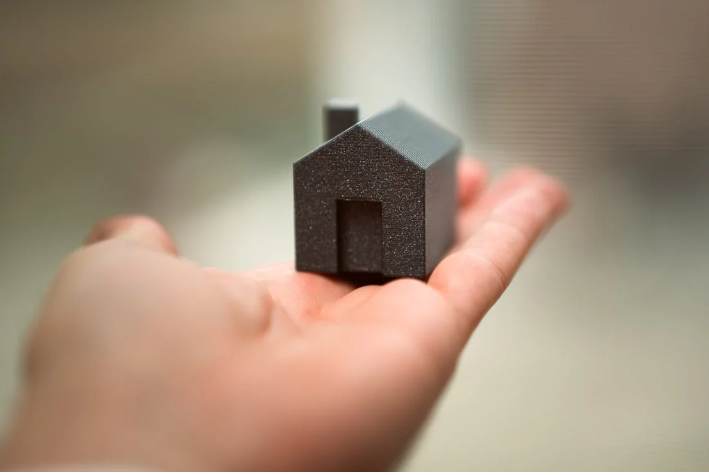Common Pitfalls to Avoid When Purchasing Your First Home
Buying your first home is a milestone many dream of achieving, but it’s not without its challenges. Whether it’s underestimating costs, skipping inspections, or making emotional decisions, the process can quickly become overwhelming without proper preparation.
Homeownership is exciting, but it’s also one of the most significant financial commitments you’ll ever make. For first-timers, the learning curve can be steep, and mistakes can be costly. However, with the right knowledge, you can navigate this process with confidence and avoid common pitfalls that often leave buyers disappointed or financially strained.
Don’t Underestimate the True Costs of Homeownership

Many first-time buyers focus solely on the purchase price, overlooking the ongoing expenses that come with owning a home. Maintenance costs, property taxes, and homeowners insurance can add up quickly. For instance, experts suggest budgeting at least 1% of the home’s value annually for maintenance and repairs. On a $300,000 home, that’s $3,000 a year—on top of your mortgage payments.
Utility upgrades, landscaping, and HOA fees can also surprise buyers. These recurring costs are often underestimated but are crucial to factor into your budget to avoid financial strain. A realistic understanding of these expenses will prevent future headaches.
Skipping Pre-Approval Can Derail Your Plans
One of the most crucial steps listed in any guide to buying your first home is securing a mortgage pre-approval. Without pre-approval, you risk falling in love with homes that are out of reach. Worse, you might face delays when you find the perfect home, only to be beaten out by pre-approved buyers.
Pre-approval helps lenders determine how much they’re willing to lend based on your financial history. It also gives sellers confidence that you’re a serious buyer. Skipping this step can lead to wasted time, frustration, and missed opportunities.
Researching Neighborhoods Should Be a Priority
It’s easy to focus on the home itself and forget about the surrounding area. However, the neighborhood you choose will significantly impact your daily life and long-term satisfaction. Factors like school quality, safety, and commute times should be high on your checklist.
Visit neighborhoods at different times of day to get a true sense of the area. What seems peaceful in the afternoon might feel unsafe at night. Look into local amenities, like parks and grocery stores, as these conveniences can make a big difference. A well-researched neighborhood can enhance your quality of life and protect your investment.
Skipping the Home Inspection Can Cost You Later
Buying a home is an emotional process, and it’s tempting to rush into closing once you’ve found the one you love. However, skipping a home inspection is one of the biggest mistakes first-time buyers make. Inspections uncover potential problems, from minor issues like leaky faucets to major concerns like structural damage or outdated electrical systems.
While waiving an inspection might make your offer more competitive in a hot market, it’s a risk that could lead to thousands of dollars in unexpected repairs. A thorough inspection provides peace of mind and can also be a powerful negotiation tool if problems are found.
Don’t Let Emotions Drive Your Decision
Purchasing your first home is exciting, but emotions can cloud your judgment. It’s easy to fall in love with a charming property and overlook practical considerations, such as whether it meets your needs or fits your budget. Emotional decisions often lead to buyer’s remorse, especially if you realize later that the home doesn’t align with your long-term goals.
Create a checklist of must-haves and deal-breakers before you start your search. Stick to this list and resist the urge to stretch your budget for features you don’t need. Staying objective will help ensure you make a choice that you’re happy with for years to come.
Neglecting to Budget for Closing Costs Is a Costly Mistake
Many first-time buyers focus on the down payment but fail to plan for closing costs.
Closing costs include fees for loan origination, appraisal, title insurance, and more. For a $250,000 home, this could mean an additional $5,000 to $12,500 at closing.
To avoid last-minute financial stress, research these costs early in the process and set aside funds specifically for them. Some lenders offer options to roll these costs into your mortgage, but this increases your monthly payments. Understanding your financial obligations upfront ensures a smoother closing experience.
Understanding Loan Options Saves You Money in the Long Run
Choosing the wrong loan type can have long-term consequences. Fixed-rate mortgages offer consistent payments but may not be ideal if you plan to move within a few years. Adjustable-rate mortgages, on the other hand, start with lower rates but can increase significantly over time.
Take the time to research loan options and understand their terms. Speak with your lender to determine what works best for your financial situation. Avoid signing agreements you don’t fully understand, as this can lead to unexpected financial burdens.
Major Financial Changes Before Closing Can Disrupt Everything
Once your offer is accepted, it’s critical to maintain financial stability until the sale is finalized. Making large purchases, like a car or furniture, or opening new credit accounts can alter your credit score and debt-to-income ratio, which can jeopardize your loan approval.
Avoid any significant financial changes until after closing day. Stick to your current budget, and hold off on big-ticket purchases. Even well-meaning decisions, like paying off a large debt, can impact your mortgage approval if not done strategically. Patience during this final stage ensures everything proceeds smoothly.
Buying your first home is a thrilling milestone, but it requires careful planning and informed decision-making to avoid costly mistakes. From securing pre-approval to budgeting for hidden expenses and seeking professional advice, each step plays a vital role in ensuring a successful purchase.
By staying objective, researching thoroughly, and considering long-term impacts, you can confidently navigate the home-buying process. Avoiding these common pitfalls not only protects your investment but also sets the foundation for a positive homeownership experience. With the right preparation, your first home can be a source of pride and financial security for years to come.


